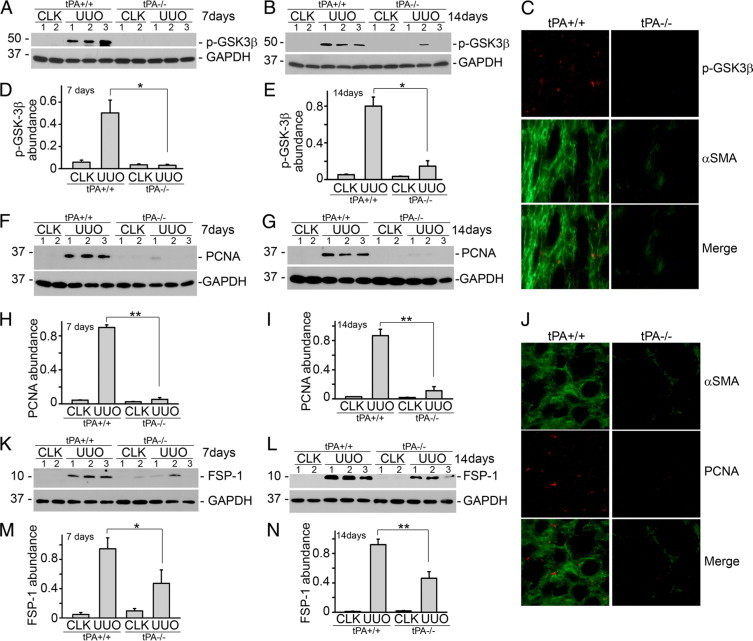Figure 9.

tPA activates proliferative signaling in vivo. tPA knockout mice exhibit reduced induction of phospho-GSK3β (A, B, D, and E), PCNA (F–I), and FSP-1 (K–N) in fibrotic kidneys. At seven days (A, D, F, H, K, and M) and 14 days (B, E, G, I, L, and N) after unilateral ureteral obstruction (UUO), kidney homogenates were probed with antibodies against phospho-GSK3β, PCNA, FSP-1, and GAPDH. Lane numbers indicate individual mice. Quantitative analysis of the relative abundance is shown in (D, H, and M) for seven days and (E, I, and N) for 14 days. *P < 0.05 and **P < 0.01, n = 5. CLK, contralateral unobstructed kidney. C: Double immunostaining of phospho-GSK3β (red) and αSMA (green) in the kidney after seven days obstruction. J: Double staining of PCNA (red, nuclei) and αSMA (green, cytoplasm) in the kidney after seven days obstruction.
